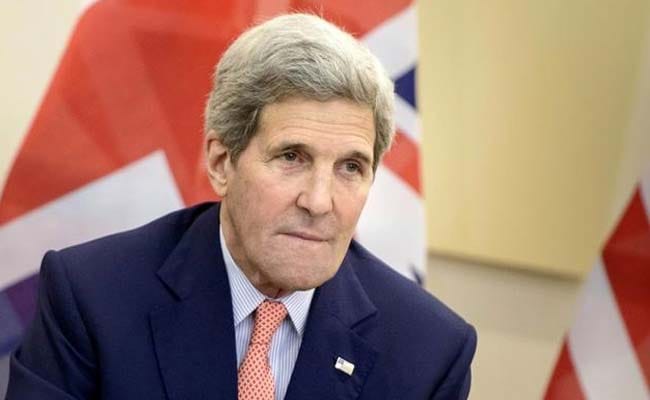
US Secretary of State John Kerry cancelled plans to fly to Boston for a ceremony in honour of his late friend Edward Kennedy as talks on Iran's nuclear programme intensified in Switzerland, with two days left to a deadline.
Kerry's spokeswoman said today that he regretted missing the dedication ceremony for an institute named after the US senator, who was a mentor to him.
Officials close to the talks said the French and German foreign ministers, Laurent Fabius and Frank-Walter Steinmeier, were considering delaying a planned joint trip to Kazakhstan in order to focus on clearing the remaining hurdles to a deal.
Iran denies charges from the West and Israel that it wants to build a nuclear weapon, and says its programme is purely peaceful. It wants the removal of international sanctions that are hurting its economy.
The six world powers negotiating with it are seeking a halt to its most sensitive nuclear work. The dispute dates back more than a decade and has threatened at times to trigger a new Middle East war.
Kerry and Iranian Foreign Minister Mohammad Javad Zarif have been in Lausanne for days to try to reach a preliminary deal by a self-imposed deadline of Tuesday. They held several rounds of talks on yesterday and met again today morning.
Fabius and Steinmeier joined the talks yesterday, and their counterparts from China, Britain and Russia will take part later today.
Close as the sides have come to the outline of an agreement, they still have deep disagreements on Iran's demands for uranium enrichment research and the immediate removal of all UN and key US and European Union sanctions. Those disagreements could wreck a deal, officials say.
Zarif says the six powers are now the ones who must compromise.
"In negotiations, both sides must show flexibility," Zarif said on Twitter. "We have, and are ready to make a good deal for all. We await our counterparts' readiness."
Western officials close to the talks said it was up to Iran to compromise on the remaining sticking points.
"The serious but difficult work continues," a senior US State Department official said. "We expect the pace to intensify as we assess if an understanding is possible."
Israel meanwhile kept up its public campaign against the possible nuclear with Tehran.
"I say here, this morning, in the name of the government of Israel, this is a bad deal, full of holes." Strategic Affairs Minister Yuval Steinitz told Israel Radio.
A key point in the framework accord the sides are trying to agree by Tuesday is expected to be the duration of the agreement, which officials from the six-power group said would have to be in place for more than 10 years.
The framework accord should be followed by a comprehensive deal by June 30 that includes full technical details.
Track Latest News Live on NDTV.com and get news updates from India and around the world

